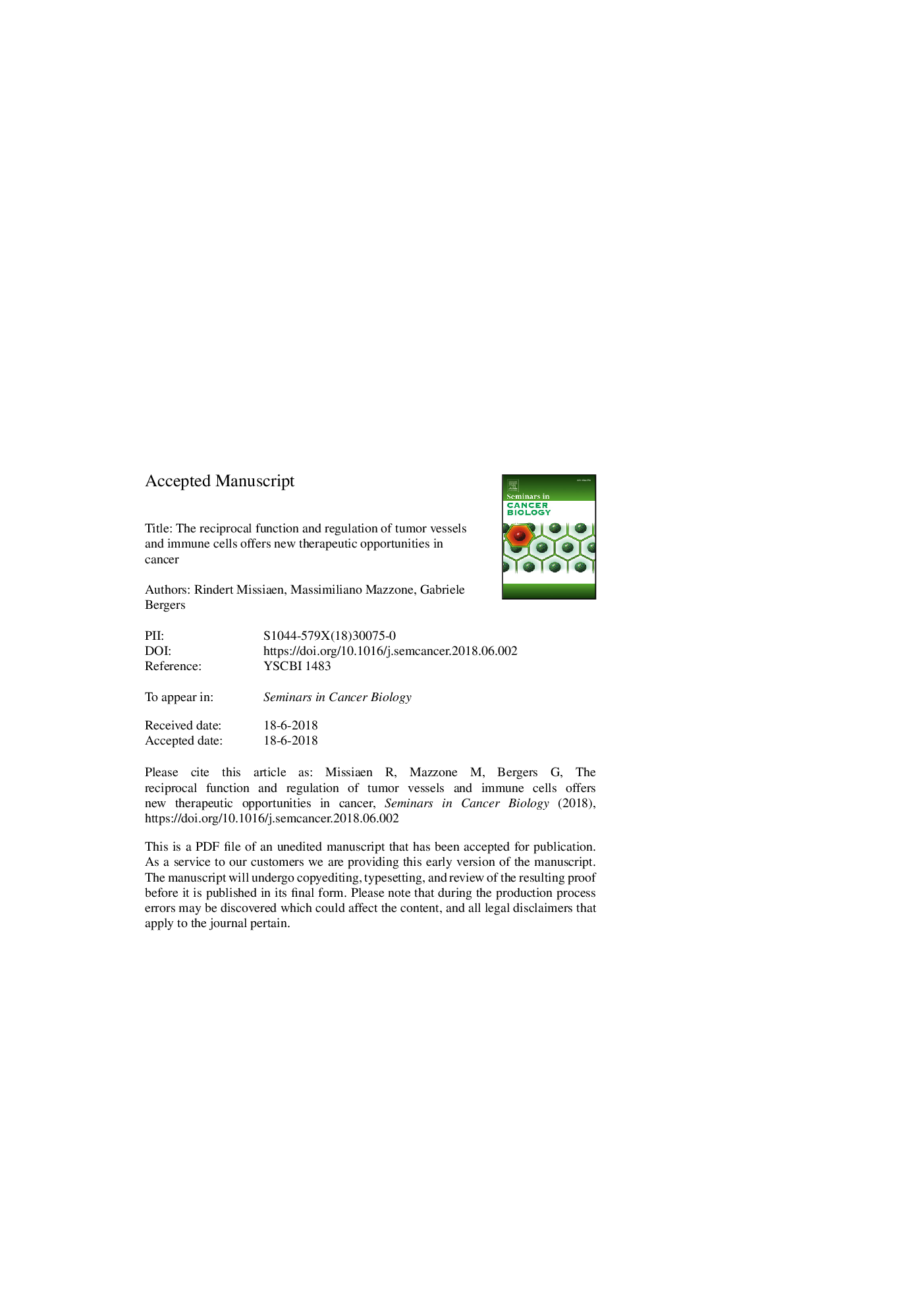| Article ID | Journal | Published Year | Pages | File Type |
|---|---|---|---|---|
| 10156991 | Seminars in Cancer Biology | 2018 | 34 Pages |
Abstract
Tumor angiogenesis and escape of immunosurveillance are two cancer hallmarks that are tightly linked and reciprocally regulated by paracrine signaling cues of cell constituents from both compartments. Formation and remodeling of new blood vessels in tumors is abnormal and facilitates immune evasion. In turn, immune cells in the tumor, specifically in context with an acidic and hypoxic environment, can promote neovascularization. Immunotherapy has emerged as a major therapeutic modality in cancer but is often hampered by the low influx of activated cytotoxic T-cells. On the other hand, anti-angiogenic therapy has been shown to transiently normalize the tumor vasculature and enhance infiltration of T lymphocytes, providing a rationale for a combination of these two therapeutic approaches to sustain and improve therapeutic efficacy in cancer. In this review, we discuss how the tumor vasculature facilitates an immunosuppressive phenotype and vice versa how innate and adaptive immune cells regulate angiogenesis during tumor progression. We further highlight recent results of antiangiogenic immunotherapies in experimental models and the clinic to evaluate the concept that targeting both the tumor vessels and immune cells increases the effectiveness in cancer patients.
Keywords
ICAMpdgfbiNOSTANARG1GM-CSFIDOPDGFPIGFTregSema3AVCAMTGFβ1Th1CSF-1PFKFB3Platelet-derived growth factor BPyMTcytotoxic T-cellPD-1CTLIDCTNFαOXPHOSLPSPD-L1ROST-helper 1Arginase-1AngiogenesisFatty acid oxidationTemICITAMTransforming growth factor-β1tumor necrosis factor-αTeffAntiangiogenic therapyImmunosuppressionNK-cellT-helper cellRegulatory T-cellDendritic cellImmature dendritic cellNatural killer cellSemaphorin3Ainducible nitric oxide synthaseplacental growth factorFAOVascular endothelial growth factorVascular Endothelial Growth Factor (VEGF)platelet-derived growth factorTNF-αOxidative phosphorylationlipopolysaccharideImmune checkpoint blockadeTumor-associated macrophagesMetabolismProgrammed cell death 1 ligand 1Immune checkpoint inhibitorsintercellular adhesion moleculevascular cell adhesion moleculeTumor-associated neutrophilsNitric oxideReactive oxygen species
Related Topics
Life Sciences
Biochemistry, Genetics and Molecular Biology
Biochemistry
Authors
Rindert Missiaen, Massimiliano Mazzone, Gabriele Bergers,
